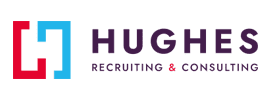How HR Managers Can Stay Updated on Employment Laws
Many legal frameworks today govern employee management in the workplace. We have important federal statutes like the Fair Labor Standards Act (FLSA), the Family and Medical Leave Act (FMLA), the Americans with Disabilities Act (ADA), and the National Labor Relations Act (NLRA).
If you’re an HR manager, these laws affect every aspect of your job, from hiring practices to employee benefits and workplace safety. Keeping up with them is almost non-negotiable because that’s how you ensure your organization remains compliant and avoids costly legal troubles. However, these laws are complex, and it’s understandable if staying updated sometimes feels overwhelming.
Overcoming the Curve of Staying Up to Date
Here are ten steps you can take to keep up with legislative changes:
1. Use Online Resources
The digital age offers information to help you comply with employment laws. Subscribing to newsletters from these organizations ensures you receive timely updates directly in your inbox. Websites of regulatory agencies like the U.S. Department of Labor, the Equal Employment Opportunity Commission (EEOC), and state labor departments regularly update their sites with new regulations and guidelines.
Additionally, many legal databases and HR software solutions are designed to keep you informed and stay compliant. Tools like Westlaw, LexisNexis, and other HR compliance software provide comprehensive databases of legal information and updates. These platforms often include features like alerts and summaries of new laws, making staying updated easier.
2. Monitor Legal Activities Closely
Another way is to monitor bills and proposals at both federal and state levels that could impact your organization. Government websites, legal news outlets, and professional associations often provide updates on legislative activities. Setting up alerts for relevant topics can ensure timely notifications about potential regulatory changes.
3. Creating Compliance Checklists and Audits
Implementing compliance checklists and regular audits provides a precise method for reviewing policies, procedures, and documentation, making finding areas that need updates easier. Your checklists should cover all aspects of employment law, such as wage and hour laws, anti-discrimination policies, and workplace safety regulations.
Regular audits, whether done internally or by external auditors, offer a thorough review of your organization’s compliance. They can uncover potential legal risks and areas of non-compliance, allowing you to address these issues proactively. Record the audit results because they can be helpful if legal problems arise.
4. Join Associations of Like-minded Professionals
Consider joining professional HR associations to stay updated on employment laws. Organizations like the Society for Human Resource Management (SHRM) and the International Public Management Association for Human Resources (IPMA-HR) offer members various resources, including legal updates, webinars, training sessions, and conferences. They also have dedicated sections on their websites where they publish articles, whitepapers, and case studies about recent legal developments.
5. Participate in Professional Workshops and Conferences
Attending workshops and conferences dedicated to employment law can offer immersive learning experiences. These events often feature sessions led by experts who discuss recent regulatory changes, future trends, and case law developments. Workshops provide hands-on training on specific topics, such as handling discrimination complaints or conducting workplace investigations.
Conversely, conferences offer a platform for gaining insights from keynote speakers, panel discussions, and breakout sessions. Participating in these events enhances your knowledge and helps you stay informed about the dynamic nature of employment laws.
6. Network with Other HR Professionals
The workshops and conferences you attend are also perfect opportunities to build a network! You can also join Local HR groups that share knowledge and experiences with peers. These networks often host events and meetings where members can discuss recent regulatory changes and their impact on HR practices.
In addition to formal networks, informal peer collaboration can be equally beneficial. You can join or create online forums and social media groups, where HR professionals exchange information and advice. Platforms like LinkedIn and Twitter have many groups dedicated to HR and employment law discussions. Following relevant accounts and participating in these conversations can provide real-time updates and practical insights on implementing regulatory changes effectively.
7. Invest in Continuous Education Through Certification Programs
Advanced degrees such as a Master’s in Human Resource Management or specialized courses in labor law provide a deeper understanding of legal complexities and emerging trends. Certification programs like the SHRM Certified Professional (SHRM-CP) or the Professional in Human Resources (PHR) are designed to equip HR professionals with up-to-date knowledge and skills.
These programs often include modules on regulatory updates, case studies, and best practices, ensuring you’re well-versed in current employment laws. Aside from the certification, continuous education demonstrates a commitment to professional growth and can enhance your credibility within the organization.
8. Seek Legal Counsel
While staying informed is crucial, situations will require professional legal guidance. Regular consultations with in-house or external employment lawyers can provide deeper insights into complex legal issues and ensure that the organization’s policies and practices comply with the latest laws. Legal counsel can also help interpret new regulations and guide implementation strategies.
You can schedule periodic meetings to discuss recent legal developments and their potential impact on the organization. These discussions may include scenario planning and risk assessments, which help prepare for possible legal challenges. The legal counsel can also provide customized training sessions for HR teams, focusing on specific legal issues relevant to the organization.
9. Implement Internal Monitoring Systems
Consider setting up an internal monitoring system to make staying updated more accessible. This involves creating processes to regularly check and update company policies and procedures to ensure compliance with legal requirements.
You can even make a calendar with important dates for reviewing laws and regulations. This helps you stay organized and proactive. Regular training sessions for HR staff and other employees can also ensure everyone knows legal requirements and responsibilities.
10. Use Technology as a Compliance Ally
Technology offers powerful tools to support a strong compliance environment. For example, HR Information Systems (HRIS) can automate tasks like leave tracking, payroll processing, and performance management. Many HRIS systems also have built-in regulatory compliance checks to ensure regulations are followed. Learning Management Systems (LMS) also provide consistent and accessible compliance training to employees across the organization, ensuring everyone receives the same training.
You can explore dedicated compliance management software like AuditBoard, Hyperproof, and LogicGate. These tools help track regulatory requirements, manage deadlines for compliance tasks, and generate reports to identify potential compliance gaps. They streamline the compliance process and minimize the risk of missing critical regulations.
LET HUGHES RESOURCES HELP YOU BUILD A STRONG WORKFORCE
While ensuring compliance, remember that having the right team can simplify your management efforts. Hughes Resources is dedicated to helping you find exceptional individuals who excel in their roles and contribute to a supportive work environment.
Our talent pool is curated through trusted recommendations and strategic networking, ensuring they meet your specific needs. With our try-before-you-buy option, you can assess a candidate with your team before making long-term decisions. We also manage all hiring paperwork, payroll taxes, workers’ compensation, and unemployment benefits, making your job easier!
Contact us today, let’s discuss your hiring needs to see how we can help.
























